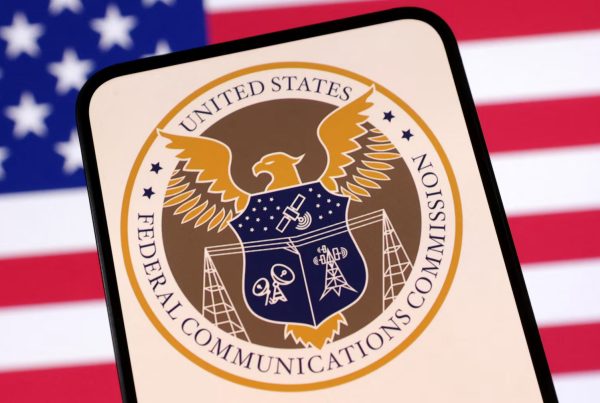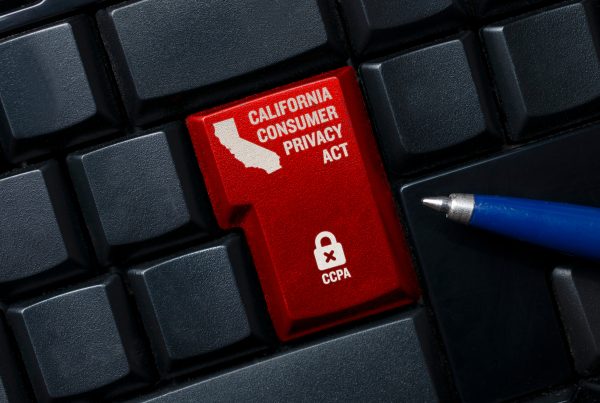The FTC’s amendments to the Telemarketing Sales Rule was published in the Federal Register today.
The amendments broadly modify requirements imposed by the TSR affecting general commercial telemarketing calls, charitable solicitations and business-to-business telemarketing calls.
The vast majority of the substantive changes to the TSR involve further (and extensive) record keeping requirements associated with telemarketing transactions. Companies will now be required to maintain scripts and other promotional materials for a period of 5 years after they are no longer used, in-depth records of telemarketing calls, identity of customers, data regarding the creation of established business relationships and advance consent, and information about employees and contractors involved in telemarketing. Furthermore, companies are required to maintain extensive information regarding customers’ requests to be added to do-not-call lists. More detailed information regarding the data to be retained is below.
The amended rule expands requirements on B2B telemarketing. Although B2B telemarketing remains largely exempt from the TSR’s requirements, the amendment expands the prohibitions on misrepresentations to these calls.
The vast majority of these amendments are effective on May 16, 2024. The requirements associated with records of each telemarketing call (shaded in grey below) are effective October 15, 2024).
The specific changes to the TSR are summarized in greater detail below:
- Definition of Previous Donor added to be person who has made a charitable contribution to a particular charitable organization within the 2-year period immediately preceding the date of the telemarketing call soliciting on behalf of that charitable organization.
- Prohibits any person from selling renting, leasing, purchasing or using any list established to comply with internal DNC request requirements or recordkeeping requirements for any purpose except compliance . .. .
- Requires sellers and telemarketers to maintain for 5 years from date the record is produced the following:
- A copy of each substantially different advertising, brochure, telemarketing script, and promotional material, and a copy of each unique prerecorded message. Such records must be kept for a period of 5 years from the date that they are no longer used in telemarketing;
- A record of each telemarketing call, which must include:
(i) The telemarketer that placed or received the call;
(ii) The seller or person for which the telemarketing call is placed or received;
(iii) The good, service, or charitable purpose that is the subject of the telemarketing call;
(iv) Whether the telemarketing call is to an individual consumer or a business consumer;
(v) Whether the telemarketing call is an outbound telephone call;
(vi) Whether the telemarketing call utilizes a prerecorded message;
(vii) The calling number, called number, date, time, and duration of the telemarketing call;
(viii) The telemarketing script(s) and prerecorded message, if any, used during the call;
(ix) The caller identification telephone number, and if it is transmitted, the caller identification name that
is transmitted in an outbound telephone call to the recipient of the call, and any contracts or other proof
of authorization for the telemarketer to use that telephone number and name, and the time period for
which such authorization or contract applies; and
(x) The disposition of the call, including but not limited to, whether the call was answered, connected, dropped, or transferred. If the call was transferred, the record must also include the telephone number or IP address that the call was transferred to as well as the company name, if the call was transferred to a company different from the seller or telemarketer that placed the call; provided, however, that for calls that an individual telemarketer makes by manually entering a single telephone number to initiate the call to that number, a seller or telemarketer need not retain the records specified in paragraphs (vii) and (x) of this section.
NEW SAFE HARBOR:
Seller or telemarketer will not be liable for failure to keep complete and accurate records pursuant to this part if it can demonstrate, with documentation, that as part of its routine business practice:
(1) It has established and implemented procedures to ensure completeness and accuracy of its records;
(2) It has trained its personnel, and any entity assisting it in its compliance, in such procedures;
(3) It monitors compliance with and enforces such procedures, and maintains records documenting such monitoring and enforcement; and
(4) Any failure to keep complete and accurate records was temporary, due to inadvertent error, and corrected within 30 days of discovery.
- For each prize recipient, a record of the name, last known telephone number, and last known physical or email address of that prize recipient, and the prize awarded for prizes that are represented, directly or by implication, to have a value of $25.00 or more;
- For each customer, a record of the name, last known telephone number, and last
known physical or email address of that customer, the goods or services purchased, the date such goods or services were purchased, the date such goods or services were shipped or provided, and the amount paid by the customer for the goods or services;
- For each person with whom a seller intends to assert it has an established business relationship under, a record of the name and last known telephone number of that person, the date that person submitted an inquiry or application regarding the seller’s goods or services, and the goods or services inquired about;
- For each person that a telemarketer intends to assert is a previous donor to a particular charitable organization, a record of the name and last known telephone number of that person, and the last date that person donated to that particular charitable organization;
- For each current or former employee directly involved in telephone sales or solicitations, a record of the name, any fictitious name used, the last known home address and telephone number, and the job title(s) of that employee; provided, however, that if the seller or telemarketer permits fictitious names to be used by employees, each fictitious name must be traceable to only one specific employee;
- All verifiable authorizations or records of express informed consent or express agreement (collectively, “Consent”) required to be provided or received under this part. A complete record of Consent includes the following:
- The name and telephone number of the person providing Consent;
- A copy of the request for Consent in the same manner and format in which it was presented to the person providing Consent;
- The purpose for which Consent is requested and given;
- A copy of the Consent provided;
- The date Consent was
- A record of each service provider a telemarketer used to deliver an outbound telephone call to a person on behalf of a seller for each good or service the seller offers for sale through telemarketing. For each such service provider, a complete record includes the contract for the service provided, the date the contract was signed, and the time period the contract is in effect. Such contracts must be kept for 5 years from the date the contract expires;
- A record of each person who has stated she does not wish to receive any outbound telephone calls made on behalf of a seller or charitable organization including: the
name of the person, the telephone number(s) associated with the request, the seller or charitable organization from which the person does not wish to receive calls, the telemarketer that called the person, the date the person requested that she cease receiving such calls, and the goods or services the seller was offering for sale or the charitable purpose for which a charitable contribution was being solicited; and - A record of which version of the Commission’s “do-not-call” registry was used to ensure compliance with DNC restrictions. Such record must include:
- The name of the entity which accessed the registry;
- The date the “do-not-call” registry was accessed;
- The subscription account number that was used to access the registry; and
- The telemarketing campaign for which it was accessed
- The seller and the telemarketer calling on behalf of the seller may, by written agreement, allocate responsibility between themselves for the recordkeeping required by this section. When a seller and telemarketer have entered into such an agreement, the terms of that agreement will govern, and the seller or telemarketer, as the case may be, need not keep records that duplicate those of the other. If by written agreement the telemarketer bears the responsibility for the recordkeeping requirements of this section, the seller must establish and implement practices and procedures to ensure the telemarketer is complying with the requirements of this section. These practices and procedures include retaining access to any record the telemarketer creates under this section on the seller’s behalf. If the agreement is unclear as to who must maintain any required record(s), or if no such agreement
exists, both the telemarketer and the seller are responsible for complying with this section. - In the event of any dissolution or termination of the seller’s or telemarketer’s business, the principal of that seller or telemarketer must maintain all records required under this section. In the event of any sale, assignment, or other change in ownership of the seller’s or telemarketer’s business, the successor business must maintain all records required under this section
B2B exemption does not apply to misrepresentations regarding material information pertaining to total cost to purchase, material restrictions, refund policies, etc.) and false or misleading statement to induce charitable contributions.
Mitchell Roth
mroth@rothjackson.com





